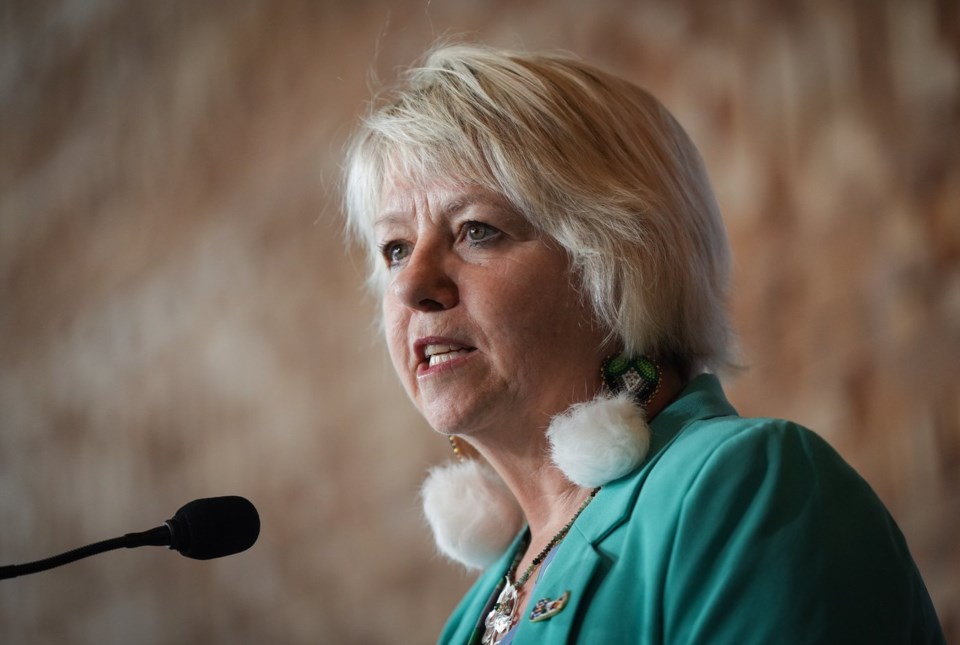VANCOUVER — The B.C. Court of Appeal says lawsuits launched by mink farmers over a pandemic-era ban on their farms have "no reasonable prospect of success," dismissing their bid for damages against the province, provincial health officer Dr. Bonnie Henry, and other officials.
The ruling posted Friday says several farms filed identical lawsuits against the provincial government after regulatory changes in 2021 made it illegal to farm mink in B.C. in response to the risk that the animals could spread respiratory viruses, namely COVID-19.
The ruling says the mink farmers disputed the "real reason" for the regulatory overhaul, claiming the province capitulated "to the anti-fur lobby and public opinion."
Justice David Harris wrote the decision for the three-judge panel, saying the farmers had no "reasonable possibility" of demonstrating the province acted unlawfully.
The ruling also says it was "misconceived" to have named B.C.'s chief public health officer Dr. Bonnie Henry and chief veterinarian Dr. Rayna Gunvaldsen as defendants.
"The allegations against them are that they supported, recommended, acquiesced to, reached, implemented and/or enacted the mink farming ban decision," the ruling says. "Misfeasance in public office is focused on conduct by a decision maker. An attempt to capture advice, recommendations, support and so forth expands the tort beyond its scope, as the judge rightly observed. Here, the conduct was a decision of cabinet."
"Drs. Henry and Gunvaldsen are not members of cabinet and did not make the decision. Neither of them has the authority to make regulations and there is no basis to treat them as if they made the decision," the ruling says.
The ruling says dismissing the case is not a judgment on the merits of the mink farmers' claims, noting their "sincere outrage" over their investments and livelihoods being destroyed by what they claimed was "unjustified, arbitrary and capricious governmental action."
The ruling says the mink farms co-operated with the province during the COVID-19 pandemic to mitigate public health risks, which they claimed were not "significant," disputing the government's assertion that shutting down the industry was for "legitimate public health related" reasons.
Lawyers for the mink farms did not immediately respond to a request for comment on the court's decision.
Joseph Williams of Williams Fur Farms Ltd. in Langley, B.C., an appellant in the case, said the ruling was "upsetting" but he wouldn't comment further as he's scheduled to meet with lawyers on Wednesday.
The five lawsuits were filed after the B.C. government made changes to the Animal Health Act in 2021 through an order-in-council.
The fur farm plaintiffs alleged the changes represented a "capitulation to the anti-fur lobby and public opinion," putting them out of business without compensation.
They claimed the government unlawfully banned mink farming "under the guise of public health protection," alleging the province enacted the ban in response to lobbying by the BC SPCA, the Association for the Protection of Fur-Bearing Animals and the Union of BC Indian Chiefs.
The B.C. Supreme Court rejected the lawsuits last year with the judge not allowing the farms to amend their claims, and on appeal, they argued the lower court didn't properly consider claims that the province "knowingly and falsely disguised the purpose of the regulatory amendments to be for the protection of public health."
The fur farms accused the provincial government of misfeasance in public office, which entails "deliberate and unlawful conduct in the exercise of public functions."
The appeals court ruling says the provincial government defendants "strenuously disputed" the farms' claims of dishonesty.
"They say that they acted lawfully, with integrity, and in the public interest to protect public health in the face of a novel and mutating disease to which mink were particularly susceptible," the ruling says.
The ruling says the court's judgment wasn't a "commentary on the merits of these opposing perspectives," but only a legal analysis of whether the lawsuits had any chance to succeed.
This report by The Canadian Press was first published Aug. 5, 2025.
Darryl Greer, The Canadian Press



